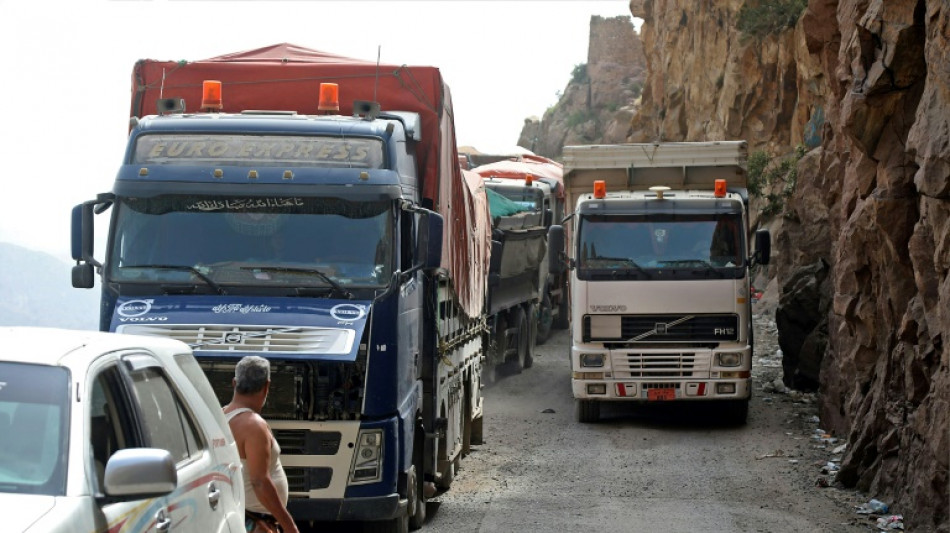
-
 Stock markets mostly higher amid trade talk hopes
Stock markets mostly higher amid trade talk hopes
-
Conclave starts May 7, with cardinals saying new pope must tackle abuse
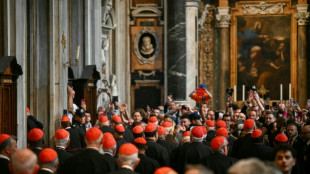
-
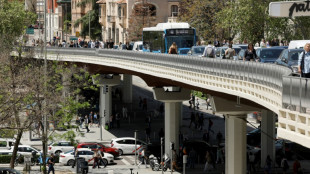 Massive blackout hits Spain and Portugal
Massive blackout hits Spain and Portugal
-
Ruediger 'must show respect to others' says Germany boss Voeller

-
 As Canada votes, Trump pushes US takeover plan
As Canada votes, Trump pushes US takeover plan
-
Ten on trial in Paris over 2016 gunpoint robbery of Kim Kardashian
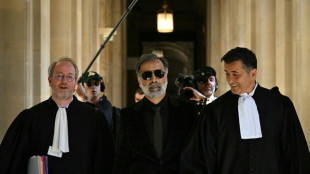
-
 African players in Europe: Salah scores, takes selfies as Reds seal title
African players in Europe: Salah scores, takes selfies as Reds seal title
-
Bangladesh spinner Taijul's 5 wickets trigger Zimbabwe collapse in 2nd Test
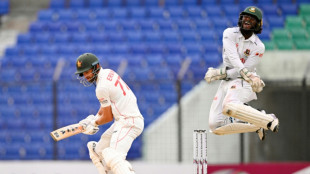
-
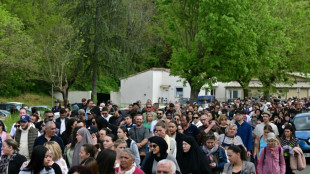 French mosque murder suspect, 21, surrenders in Italy
French mosque murder suspect, 21, surrenders in Italy
-
Mayor Khan keen for London to make Olympics history
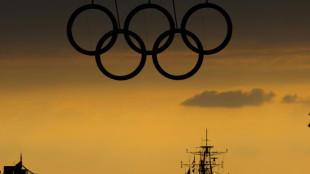
-
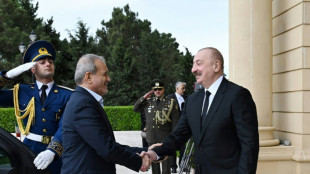 Iranian president visits Azerbaijan as ties warm
Iranian president visits Azerbaijan as ties warm
-
What we know ahead of the conclave
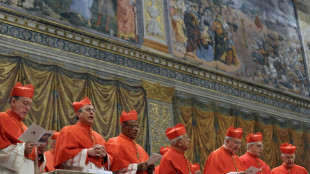
-
 Jannik Sinner launches foundation supporting children
Jannik Sinner launches foundation supporting children
-
Villagers on India's border with Pakistan fear war
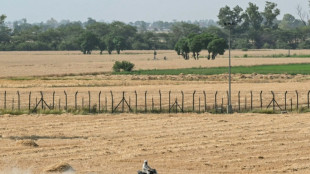
-
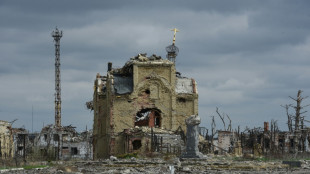 Putin announces surprise Ukraine truce for May 8-10
Putin announces surprise Ukraine truce for May 8-10
-
Conclave to elect new pope starts May 7
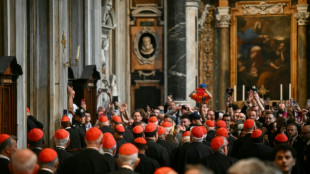
-
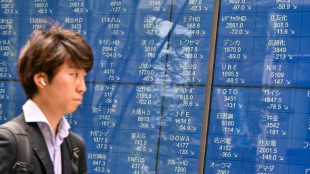 Stock markets mostly rise amid trade talk hopes
Stock markets mostly rise amid trade talk hopes
-
India says signs deal with France for 26 Rafale fighter jets
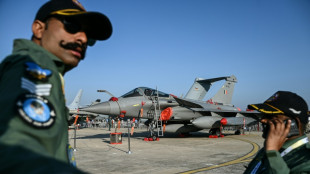
-
 Trump's deep-sea mining order violates global norms: France
Trump's deep-sea mining order violates global norms: France
-
India Kashmir crackdown sparks anger as Pakistan tensions escalate
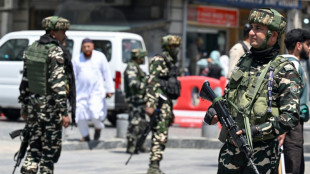
-
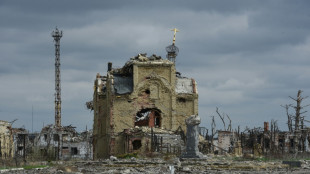 Russia says claims over annexed Ukraine regions key to peace
Russia says claims over annexed Ukraine regions key to peace
-
Austrian climber dies on Nepal mountain
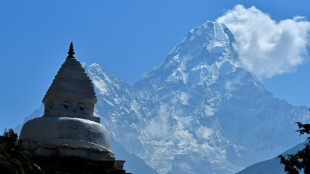
-
 Fires rage 2 days after Iran port blast killed 46
Fires rage 2 days after Iran port blast killed 46
-
Palestinian official tells ICJ Israel using aid blockage as 'weapon of war'
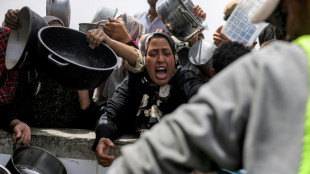
-
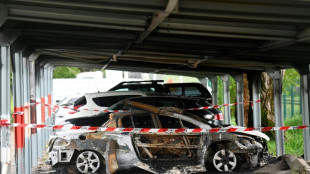 France arrests 25 in police raids after prison attacks
France arrests 25 in police raids after prison attacks
-
Kim Kardashian's next star turn is in a Paris courtroom

-
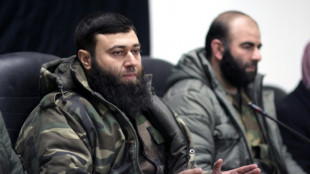 Syria group says military chief arrested in UAE
Syria group says military chief arrested in UAE
-
Anger in Indian Kashmir at demolitions and detentions
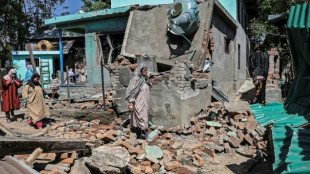
-
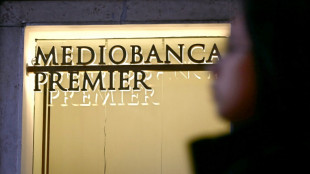 Italy bank merger wave heats up as Mediobanca eyes Banca Generali
Italy bank merger wave heats up as Mediobanca eyes Banca Generali
-
Putin critic Johann Wadephul, Germany's incoming foreign minister
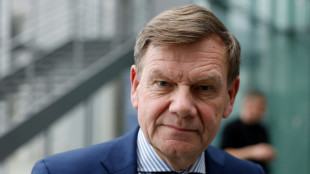
-
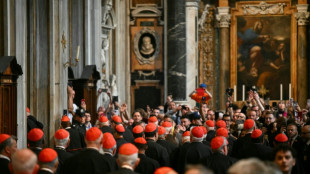 Cardinals expected to pick conclave date to elect new pope
Cardinals expected to pick conclave date to elect new pope
-
French mosque murder suspect arrested in Italy
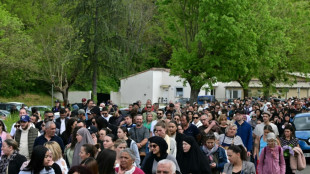
-
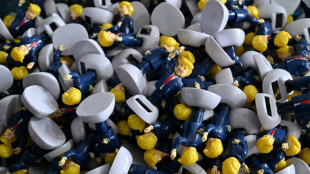 China says on 'right side of history' in trade standoff with US
China says on 'right side of history' in trade standoff with US
-
Stock markets mostly rise as investors eye trade talks
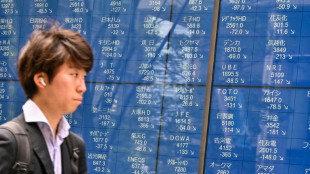
-
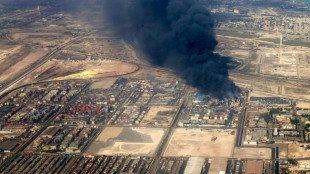 Fires rage 2 days after Iran port blast killed 40
Fires rage 2 days after Iran port blast killed 40
-
Yemen's Huthi rebel media says 68 killed in US strikes on migrant centre
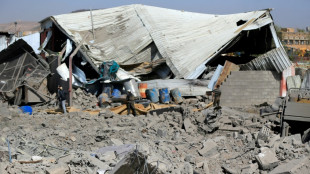
-
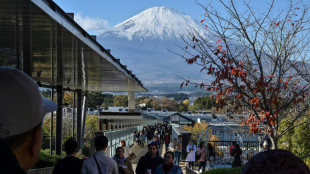 Man rescued from Mount Fuji twice in one week: reports
Man rescued from Mount Fuji twice in one week: reports
-
Canada votes for new government to take on Trump
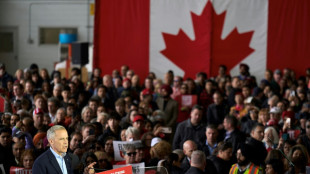
-
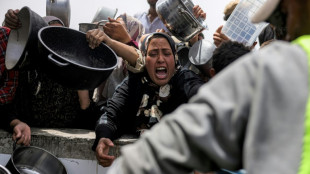 Top UN court to open hearings on Israel's aid obligation to Palestinians
Top UN court to open hearings on Israel's aid obligation to Palestinians
-
Philippines denies 'irresponsible' Chinese report on disputed reef
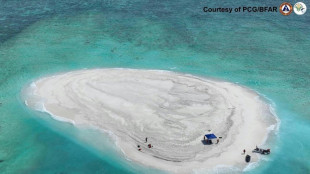
-
 T'Wolves win to push Lakers to brink, Celtics, Knicks and Pacers win
T'Wolves win to push Lakers to brink, Celtics, Knicks and Pacers win
-
Myanmar marks month of misery since historic quake
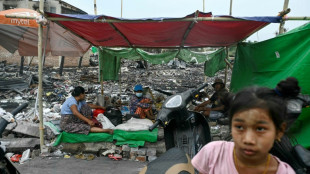
-
 South Korea's SK Telecom begins SIM card replacement after data breach
South Korea's SK Telecom begins SIM card replacement after data breach
-
Women's flag football explodes in US as 2028 Olympics beckon
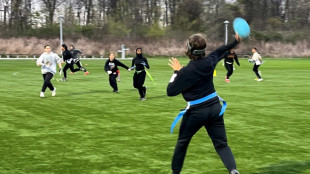
-
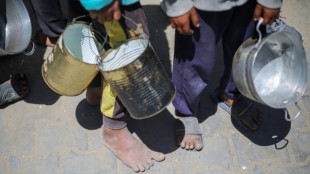 'Hunger breaks everything': desperate Gazans scramble for food
'Hunger breaks everything': desperate Gazans scramble for food
-
Suspect charged with murder in Canada car attack that killed 11
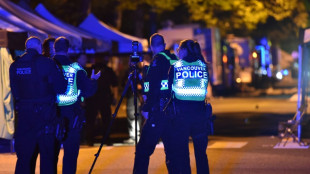
-
 Lost to history: Myanmar heritage falls victim to quake
Lost to history: Myanmar heritage falls victim to quake
-
Romania far-right rides TikTok wave in election re-run

-
 Trial begins in Paris over 2016 gunpoint robbery of Kim Kardashian
Trial begins in Paris over 2016 gunpoint robbery of Kim Kardashian
-
Trump thinks Zelensky ready to give up Crimea to Russia


Yemen's war-weary Taez choked by siege despite truce
Overloaded trucks and cars packed with families ply narrow, bumpy mountain roads surrounding this Yemeni city long-besieged by Huthi rebels -- evidence that the terms of a truce have yet to be met.
Announced just over a month ago, the truce called for warring parties to reopen the main roads into Taez, a city of roughly 600,000 people in Yemen's southwest that has been largely cut off from the world since 2015.
So far, however, those roads remain closed, meaning truck drivers and ordinary civilians have no choice but to seek out dangerous alternative routes prone to accidents and seemingly endless traffic jams.
In normal times, one such road, known as "Al-Aqroudh", should allow drivers to reach the village of Al-Hawban east of Taez in just 15 minutes.
But now the trip can take up to eight hours.
"People are tired, especially children and women. We wait in traffic jams for three or four hours because of the narrowness of the road," truck driver Abdo al-Jaachani told AFP.
These days he only uses the road once or twice a week to avoid a rough journey that is compounded by the wear-and-tear on vehicles as well as the rising price of fuel.
Yemen's war pits the Iran-aligned Huthis against the Saudi-led military coalition backing the country's internationally recognised government.
The Huthis took control of the capital Sanaa in 2014, prompting the coalition to intervene the following year and giving rise to what the United Nations has termed the world's worst humanitarian crisis.
Hundreds of thousands of people have been killed and the country has been pushed to the brink of famine.
Despite the coalition's backing, forces loyal to the government have failed to prevent the Huthis from seizing control of most of northern Yemen and eyeing other strategic areas.
- 'Unspeakable' situation -
The two-month renewable truce began in early April, coinciding with the start of the Muslim holy month of Ramadan.
It has provided much of the Arab world's poorest country with a rare respite from violence.
Less than a week after it took effect, Yemen's then president Abedrabbo Mansour Hadi announced he was handing over power to a new eight-man leadership council, fuelling cautious optimism over a long-term ceasefire.
The truce has also seen oil tankers arriving at the port of Hodeida, potentially easing fuel shortages in Sanaa and elsewhere.
But a deal to resume commercial flights out of Sanaa's airport for the first time in six years has yet to materialise, with a planned inaugural flight in late April postponed indefinitely. Each side blames the other for the holdup.
And Taez remains under siege, to the dismay of civil society organisations.
Each day "civilian victims fall on rugged mountain roads", more than a dozen groups said in a joint statement in April.
"The horrifying scenes of vehicles and trucks falling apart with people and goods... are unspeakable."
In a Twitter post Wednesday, the French embassy in Yemen expressed "deep concern over the siege of Taez which has lasted for several years and which places its many inhabitants in humanitarian distress".
Residents like Abdallah Rajeh find themselves unwilling to venture out to see relatives as such trips are "very painful because of the bumpy road and the traffic jams".
Like many of his neighbours, he holds out hope that the truce will eventually unblock the main roads in and out of Taez.
"If the crossings are not reopened, people will pay the price," he told AFP.
"All these problems and difficulties only affect ordinary people."
A.Jones--AMWN